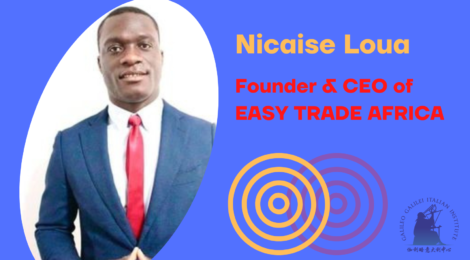
Galilei Circle of Friends – Interview with Nicaise Loua

As the Founder and CEO of Easy Trade Africa, Mister Loua brings a wealth of expertise to the import-export domain, with a particular focus on supply chain management. His experience spans both B2B and B2C markets. He is also an author, disseminating his experience and knowledge within the industry. His approach is centered around refining supply chain processes and enhancing operational efficiency, aiming to assist businesses in minimizing costs and accelerating delivery schedules.
Today we bring you his successful story between Africa and China, enjoy it!
1. INTRODUCTION – Personal relationship with China
How did your experience with China begin? Was it a casual meeting, related to your work, for pleasure?
In 2015, after finishing my studies in Ivory Coast, I moved to China. At first, China felt completely foreign to me. There’s a saying back home, “A new land, a new dance; the rhythm changes but the steps must be learned.” This perfectly captured my early days in China. But, as time passed, I slowly began to blend into the local culture, especially during my studies. Making friends with some of the locals was a game-changer for me, helping me to dive deeper into understanding Chinese culture and society. Looking back, I’m grateful for these experiences.
How has your relationship with China evolved over time? Have you been based in the country or you have been traveling from Africa to China often? Which city did you choose in particular to start your Chinese experience? And why?
My adventure took a significant turn in Shanghai, a city known for its dynamic trade scene. I chose Shanghai because it’s at the forefront of international trade and manufacturing, which allowed me to witness China’s economic strength firsthand.
What has your experience in this country taught you at a personal level?
Living in China has changed me deeply. Meeting people from different backgrounds taught me about adaptability, resilience, and the importance of working together despite our differences. These lessons have been invaluable, shaping my personal growth and broadening my perspective on the world.
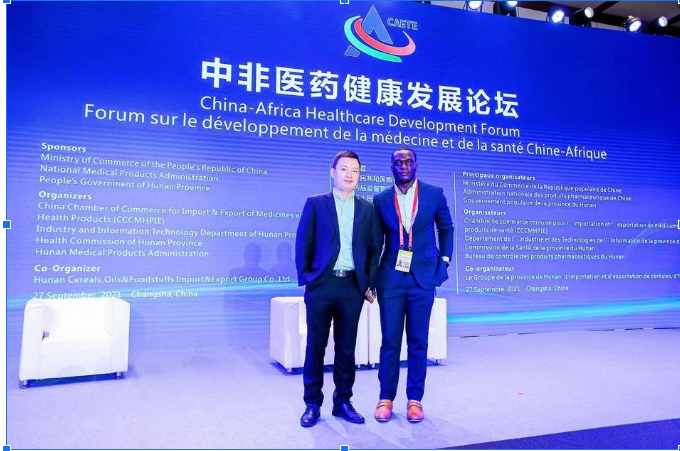
2. BUSINESS in China and with China
Tell us about your business experience in China. What is your role and what are the main results you have achieved over the years?
Discussing business in and with China is a topic I find very intriguing. Let me explain the difference between doing business in China and doing business with China, as these are two distinct areas.
Starting a business in China involves understanding and following many rules and regulations, especially for foreigners. Despite these challenges, China’s dynamic and growing economy offers numerous opportunities. My journey began with leveraging my education in international trade, which led me to start working in the import-export industry.
I was fortunate to receive tremendous support from my teachers and friends in China. Despite initial challenges related to cultural and language differences, we worked hard to develop successful business models, achieving notable successes over time.
Looking at business with China, it’s clear that China is becoming an increasingly important trading partner for many countries, including my own, the Ivory Coast. Engaging in trade with China has allowed many African nations to gain valuable insights into industrial development and supply chains. This has not only enhanced trade relationships but also created job opportunities and helped bridge the cultural and economic gap between Africa and China.
In my role within the import-export sector, I’ve focused on making strategic decisions, building partnerships, and promoting sustainable growth. Our company has made significant progress, establishing a solid presence in the Chinese market. We operate across various industries, mainly importing raw materials and exporting finished products. Our base in cities like Shanghai and Nanjing offers easy access to global markets and efficient supply chain management.
China’s commitment to innovation has transformed traditional business practices, offering both challenges and opportunities. Navigating the complex regulatory environment and the competitive market requires constant adaptation. Being culturally aware and able to communicate effectively in multiple languages is crucial for successful business operations here.
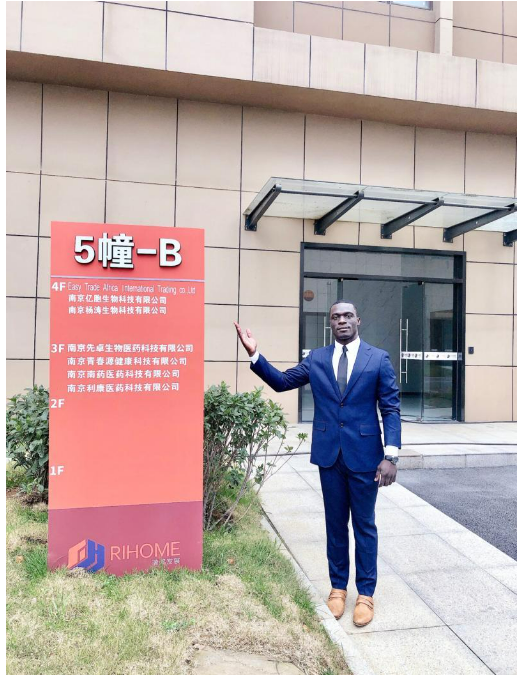
How did the pandemic affect your business and what strategies have you implemented since its outbreak to respond to the crisis?
The pandemic brought unique challenges, disrupting supply chains and affecting demand worldwide. We quickly adapted by embracing digital tools and remote working solutions to keep our business running smoothly.
What are the main challenges you have encountered in your experience as a successful manager in China? What are the positive surprises?
As a startup founder in China, I’ve faced various obstacles, from navigating the legal system to adjusting to cultural differences. Yet, these challenges have led to innovative approaches and valuable learning experiences, highlighting the need for flexibility and resilience.
How important is the role of technology in your business? From this point of view, is it an advantage for your company to be able to operate in China?
Technology is a key driver in our business, enhancing efficiency, communication, and market reach. Operating in China gives us access to the latest technological advancements, giving us a competitive edge.
Are you also active in Africa? Or only in China?
While we are primarily focused on China, we are also very interested in the growing opportunities in Africa. Through strategic partnerships, we aim to connect these two dynamic regions, supporting economic growth and mutual benefits.
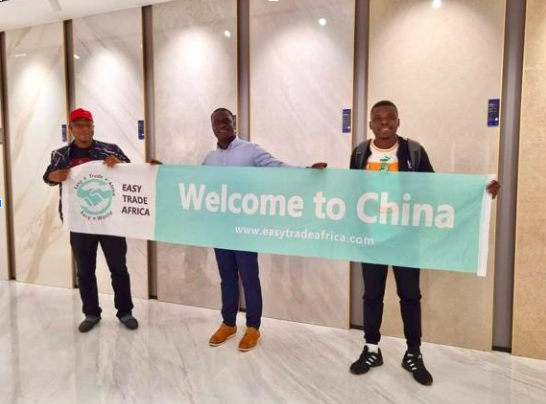
3. GOING EAST – Why does being in China make sense for an African manager/entrepreneur?
Why does it still make sense to focus on the Chinese market for an African company and what are the opportunities in particular in the part of the country where you operate?
Turning our attention eastward, it’s clear why China is a smart choice for African entrepreneurs and managers. China’s rapid growth and its role as a leading global economy offer incredible chances for business expansion. The country’s initiatives, like the Belt and Road Initiative, are creating new pathways for African businesses to enter thriving markets.
China is becoming increasingly important for African countries looking to do business. For example, the China International Import Expo (CIIE) is a fantastic opportunity for businesses worldwide to tap into China, a huge market hungry for international products, specially African finish product and raw materials.
Take my home country, Ivory Coast, which leads the world in cocoa bean exports. China represents a massive market for our agricultural goods. We’re working on a supply chain platform to help local farmers in Ivory Coast sell their products directly to buyers in China and elsewhere. This effort aims to boost the economies of both regions.
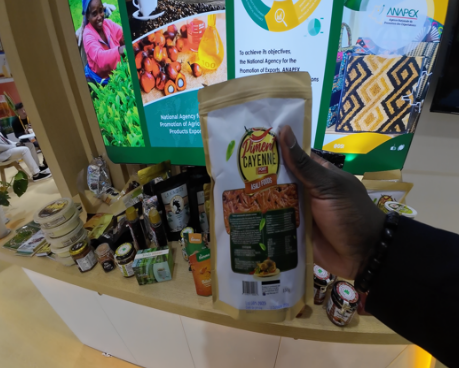
Are you already present in Chongqing or in the Chengdu-Chongqing economic circle?
The Chongqing-Chengdu Economic Circle showcases the benefits of combining culture, tourism, and infrastructure. Chongqing and Chengdu, known for their rich Shu culture, are places I’ve enjoyed greatly. However, because Easy Trade Africa mainly operates in Shanghai/Nanjing, in southeast China, we haven’t yet tapped into the Chongqing-Chengdu area. I hope to explore Chongqing and Chengdu more in the future, learning about local businesses and culture.
Thanks for letting me share my story. I’m looking forward to talking more about this exciting topic.
Interview by Marco Bonaglia



